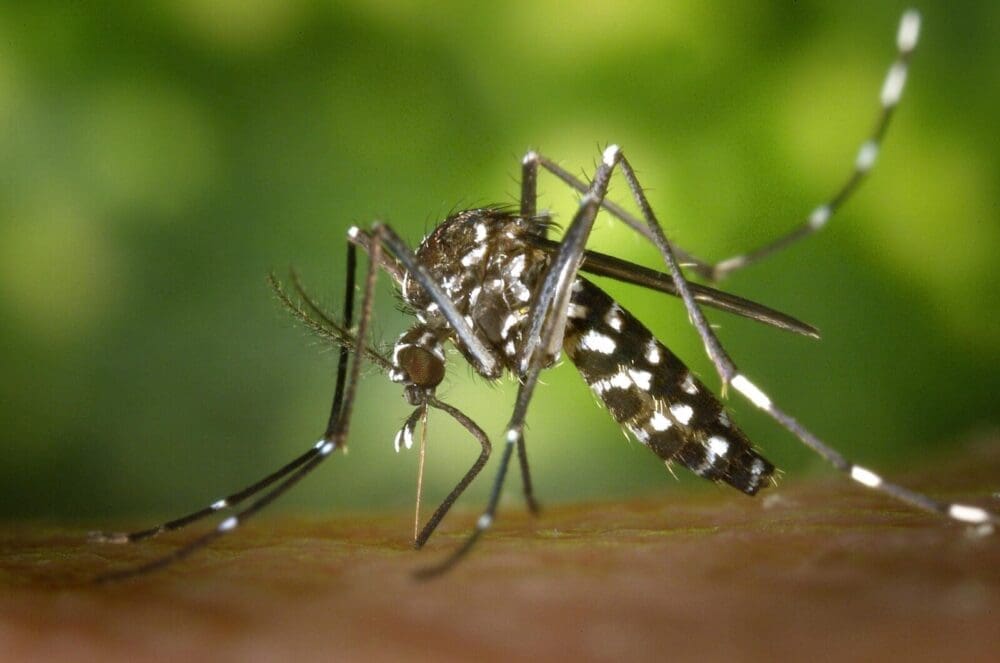Health officials in New Jersey are advising residents to use mosquito repellent and implement protective measures after multiple mosquito pools tested positive for Eastern Equine Encephalitis (EEE).
EEE, a potentially fatal virus transmitted through mosquito bites, has resurfaced, raising concerns across the state. While many infected individuals may experience mild or no symptoms, severe cases can lead to permanent brain damage or death.
The New Jersey Department of Health has identified EEE as one of the most severe mosquito-borne diseases in the United States, with a mortality rate of approximately 33%. Survivors often suffer from significant neurological damage.
EEE is a rare illness in humans, with only a few cases reported annually in the U.S., primarily in Atlantic and Gulf Coast states. Severe cases typically begin with symptoms like sudden headache, high fever, chills, and vomiting, potentially progressing to disorientation, seizures, or coma. There is no specific treatment for EEE; medical care focuses on managing symptoms.
In New Jersey, the virus has been detected in mosquito pools across Hunterdon, Monmouth, Morris, and Union counties. The state has also confirmed one human case of EEE in Atlantic County this year. However, details about the severity of the infection or the individual’s current condition have not been disclosed. Since 2010, six human cases of EEE have been recorded in New Jersey.
Nationally, three cases of EEE have been reported this year, with additional cases in Massachusetts and Vermont. Health officials urge anyone who suspects they may have EEE to seek immediate medical attention. All confirmed cases must be reported to the New Jersey Department of Health within 24 hours.
To reduce the risk of infection, residents are advised to use insect repellent, wear protective clothing, and avoid outdoor activities during peak mosquito activity. Eliminating standing water around homes, where mosquitoes breed, can also help reduce the risk.
For more information, the New Jersey Department of Health provides updated data and guidance on its website.
The New Jersey Digest is a new jersey magazine that has chronicled daily life in the Garden State for over 10 years.
- Staffhttps://thedigestonline.com/author/thedigeststaff/
- Staffhttps://thedigestonline.com/author/thedigeststaff/
- Staffhttps://thedigestonline.com/author/thedigeststaff/
- Staffhttps://thedigestonline.com/author/thedigeststaff/


